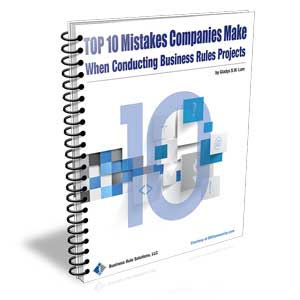Best Practices of Process Management: The Top Ten Principles (Part 8)
Years of successful and not-so-successful process management experience have led to a set of best practices -- a number of fundamental principles that must be honored in order to optimize returns to the company, the delivery of business results to customers, and to satisfy the needs of the organization's other stakeholders.
In this series, I outline the ten principles that underlie the methods of business process operation and change. In this column, I discuss the 8th principle.
Principle 8: Process Renewal Initiatives Must Be Conducted in an Iterative, Time-Boxed Approach
This Principle extends into an approach that encourages you to learn, create something, review it, and plan the next cycle of the same. It assumes that people don't know everything in advance and that they must create an environment wherein they can figure things out and articulate them incrementally. This iterative approach assumes that you will need to attempt changes first at a fairly high level of abstraction before getting too detailed.
This concept isn't new, but, more recently, those applying the concept have proven the benefit of doing only a time-fixed amount of work before reviews occur. This is often referred to as time boxing.
Time boxing dictates that the activity schedule is preset and the amount of work performed varies according to what can be done within the timeframe. It also solves one of the biggest problems in process-oriented change situations -- that is, scheduling the participants, especially management, for key reviews.
Experience confirms commitment to the findings is also built incrementally. However, it's important that the right knowledge be pursued -- that is, relevant knowledge to the task at hand as defined by the stakeholder criteria.
Certain overly detail-oriented staff should be kept away from this type of work. We are analyzing and developing processes, not procedures. This type of rapid-fire work can put tremendous pressure on team members, who are now living a series of short-term deadlines. Perfectionists will have a difficult time with this.
What is needed is good listeners, those who can develop trust and respect, and good presenters, those who will explain but never defend their findings. They must not take changes personally; they must be comfortable in revealing their incomplete, incorrect work products and see the changes to them.
References
[1] Roger T. Burlton, "Best Practices of Process Management: The Top Ten Principles (Part 1)," Business Rules Journal, Vol. 7, No. 1 (Jan. 2006), URL: http://www.BRCommunity.com/a2006/b269.html
[2] Roger T. Burlton, "Best Practices of Process Management: The Top Ten Principles (Part 2)," Business Rules Journal, Vol. 7, No. 2 (Feb. 2006), URL: http://www.BRCommunity.com/a2006/b273.html
[3] Roger T. Burlton, "Best Practices of Process Management: The Top Ten Principles (Part 3)," Business Rules Journal, Vol. 7, No. 3 (Mar. 2006), URL: http://www.BRCommunity.com/a2006/b278.html
[4] Roger T. Burlton, "Best Practices of Process Management: The Top Ten Principles (Part 4)," Business Rules Journal, Vol. 7, No. 4 (Apr. 2006), URL: http://www.BRCommunity.com/a2006/b285.html
[5] Roger T. Burlton, "Best Practices of Process Management: The Top Ten Principles (Part 5)," Business Rules Journal, Vol. 7, No. 5 (May 2006), URL: http://www.BRCommunity.com/a2006/b291.html
[6] Roger T. Burlton, "Best Practices of Process Management: The Top Ten Principles (Part 6)," Business Rules Journal, Vol. 7, No. 6 (June 2006), URL: http://www.BRCommunity.com/a2006/b296.html
[7] Roger T. Burlton, "Best Practices of Process Management: The Top Ten Principles (Part 7)," Business Rules Journal, Vol. 7, No. 7 (July 2006), URL: http://www.BRCommunity.com/a2006/b302.html
# # #
About our Contributor:
Online Interactive Training Series
In response to a great many requests, Business Rule Solutions now offers at-a-distance learning options. No travel, no backlogs, no hassles. Same great instructors, but with schedules, content and pricing designed to meet the special needs of busy professionals.












How to Define Business Terms in Plain English: A Primer
How to Use DecisionSpeak™ and Question Charts (Q-Charts™)
Decision Tables - A Primer: How to Use TableSpeak™
Tabulation of Lists in RuleSpeak®: A Primer - Using "The Following" Clause
Business Agility Manifesto
Business Rules Manifesto
Business Motivation Model
Decision Vocabulary
[Download]
[Download]
Semantics of Business Vocabulary and Business Rules